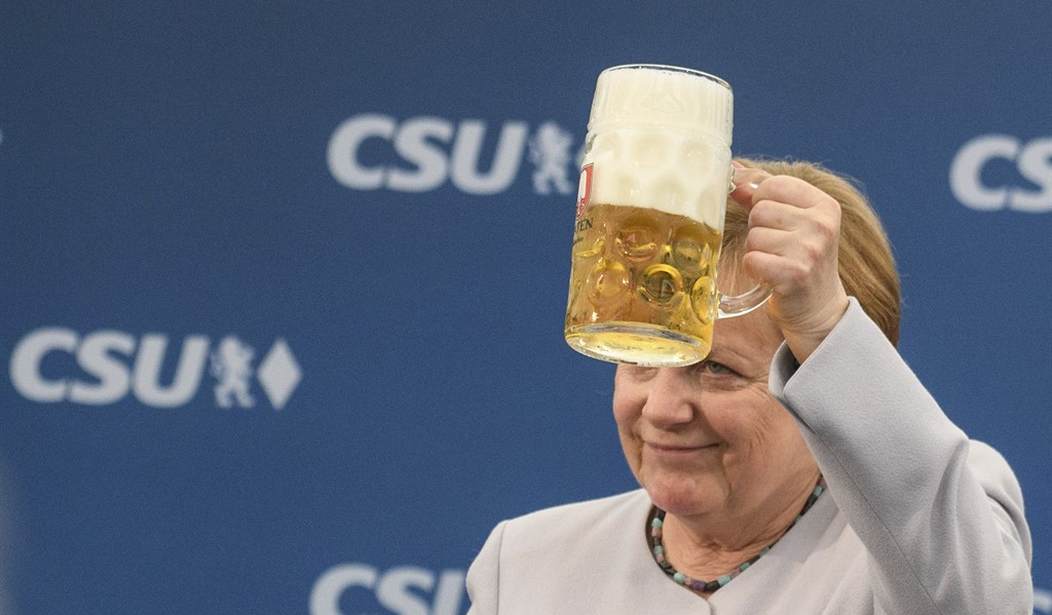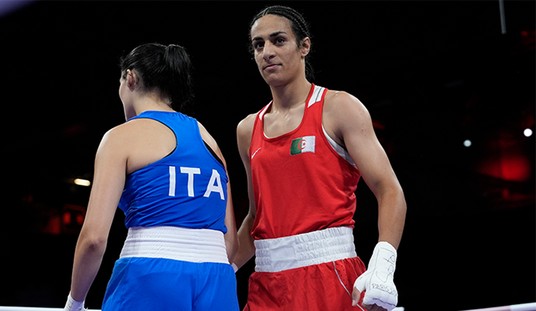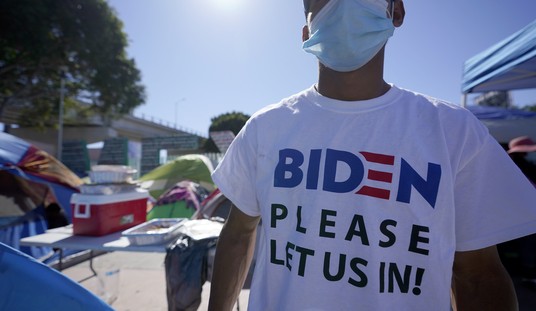This morning I heard CNN political commentator Errol Louis describe it as a drastic turn in international policy, a “sea change” in European relations and “music to the ears of Vladimir Putin.” The Washington Post described it as, “a clear repudiation of [Trump’s] leadership.” What on Earth could it be? Well, as it turns out, the wire services all picked up on a comment that German Chancellor Angela Merkel made during a campaign stop last night having to do with the future of the European Union. The Associated Press described it as a warning that the United States and Britain were, “no longer reliable partners.”
Europe “must take its fate into its own hands” faced with a western alliance divided by Brexit and Donald Trump’s presidency, German Chancellor Angela Merkel said Sunday.
“The times in which we could completely depend on others are on the way out. I’ve experienced that in the last few days,” Merkel told a crowd at an election rally in Munich, southern Germany.
“We Europeans truly have to take our fate into our own hands,” she added.
Wow. When you phrase it that way it certainly sounds like a sudden and precipitous departure from an alliance which has defined the past several generations, doesn’t it? Except that the reading of the tea leaves required to arrive at that conclusion is completely overblown. Digging into the details of what Merkel actually said, where she said it and the context for those comments you will find a far less inflammatory campaign speech. Writing at Politico, Matthew Karnitschnig quickly threw cold water on the media’s hot takes and pointed out that Merkel is a seasoned politician who chooses her words carefully.
“The era in which we could fully rely on others is over to some extent,” Merkel said, before adding, “That’s what I experienced over the past several days.”
The qualifiers “fully” and “some extent” weren’t unintentional; with this German chancellor, little is.
So what at first listen may sound like a major departure from Germany’s commitment to the transatlantic alliance is, in fact, consistent with Merkel’s rhetoric ever since Donald Trump was elected U.S. president. It’s also in keeping with her agenda to push European integration forward, a goal she believes the election of Emmanuel Macron as French president has put within reach.
This was simply Merkel in the midst of a heated campaign where she was once considered in serious danger of losing, but has now put some daylight between herself and her challengers. She’s also hoping to ride the trends suggested by Macron’s victory in France over Marine Le Pen, taking that as a sign that the globalization of Europe is recovering a bit of its popularity among voters in her country. Despite terror attacks and an ongoing refugee crisis which threatens the “dominant culture” of Germany, the Chancellor is going back to playing her list of greatest hits in the hopes of not only winning the upcoming election, but cementing her policy legacy.
Even if we were to assume that Merkel was signaling some sort of pivot away from America and Great Britain, where do you suppose Germany and the rest of the European Union would pivot to? Russia? China? That’s an impossible scenario. And even if Merkel were insane enough to seriously ponder any such shift in alliances she would hardly choose to make her announcement while hoisting a stein of lager in a crowded Biergarten. Karnitschnig concludes his analysis with the following dose of harsh reality.
While it’s no secret that Merkel and Trump don’t see eye-to-eye on several fronts, including on climate and trade, the German leader, a long-term strategist, would no more call Germany’s relationship with the U.S. into question than she would her country’s European commitment.
For better or worse, the U.S., both in terms of trade and security, is Germany’s indispensable partner, a reality even Trump is unlikely to change any time soon.
Precisely. As White House administrations shift, relations between European leaders and America always have to adjust to the personality and policies currently emanating from the Oval Office. Europe is still mostly run by leaders with heavy socialist tendencies so they will always be more chummy with Democrats who win the presidency. But the overall arc of European relations with the United States remains the same.
This was not Angela Merkel, leader of the dominant member of the EU pronouncing new policy. This was Angela Merkel, politician facing a contentious reelection bid, tossing out a few nuggets to the press to cement her ties to France and garner a few headlines, both at home and internationally. And it worked perfectly.








Join the conversation as a VIP Member